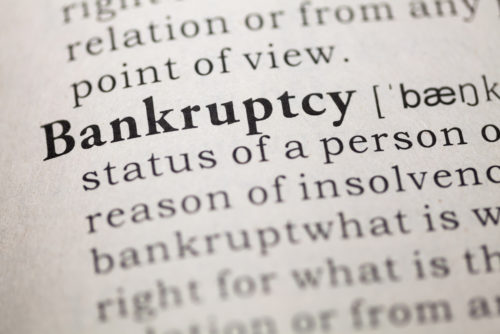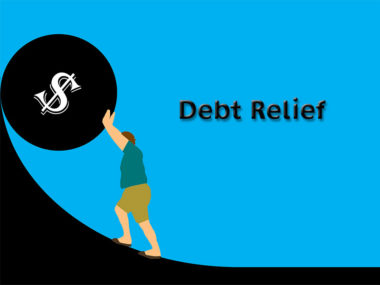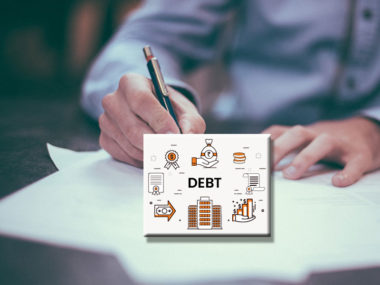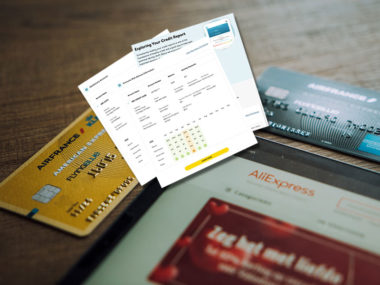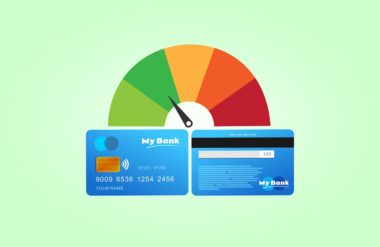If you’ve looked into bankruptcy, you’ve likely heard the terms “discharge” and “dismissal”. In this guide, we’re mostly going to focus on what a discharge means in relation to your case and we’ll briefly discuss why it’s important to know the court’s definition of a dismissal. We’ll take a look at what kinds of debts qualify for a discharge and what other debts do not. Lastly, we’ll examine how long a discharge will take and what results you can expect from the most common types of bankruptcy.
Before we get into discharges and dismissals, and how they apply to the most common chapters of bankruptcy, let’s define what we mean when we say “discharge”. Receiving a discharge means that some or all of your debts have been forgiven in a bankruptcy case. Once a discharge has taken place, collectors are no longer allowed to try to contact you in an effort to receive the forgiven debt. This practice looks slightly different for each chapter of bankruptcy. So, let’s take a deeper look into what it means for the two most common chapters — 7 & 13.
Table of Contents
Chapter 7 Bankruptcy Discharge
Chapter 7 bankruptcy usually focuses on individuals with a smaller amount of income, compared to someone who files a chapter 13 bankruptcy claim. As such, the courts regularly discharge most debts associated with the case after the claimant has proven that they cannot repay any of the debts.
However, there are some debts that won’t be discharged by either bankruptcy chapter. Of course, each case is completely unique and the court will decide what is a reasonable discharge based on your situation. With that being said, the types of debt that you might be able to expect a discharge for would include: credit card debt, unsecured debt, personal loans, money owed from a lawsuit, medical charges, and debt accrued from renting a property or via another contract of some sort.
What Types of Debts Will Not Be Discharged?
While these are all very common types of debt to receive a discharge, every case is different, and your individual situation will be examined thoroughly before a decision is made. Yet, no matter the case, certain debts are likely to not be forgiven. These debts include: debts from a marriage (alimony, child support, etc.), retirement plan loans, student loans, previous court costs and fines accrued from criminal penalties, some types of taxes (business, fraudulent income taxes, and property taxes from the past year), and fees associated with an owned property (usually having to do with homeowners associations).
In addition, if the court deems any debts as being linked to willful and/or malicious actions, those debts are automatically removed from the possible discharge list, no matter the chapter you’re filing for. Likewise, any debts that you have accrued due to a DUI and/or injury to another person will not be considered dischargeable in any bankruptcy case.
Lastly, when filing your bankruptcy claim, make sure that you are thorough. Anything that is not reported on your bankruptcy claim will not be taken into consideration. In other words, you cannot ask the judge to discharge additional debts that you didn’t originally ask for a discharge for. Any and all debts that you would like the judge to consider should be included in the initial filing. This rule goes for all chapters of bankruptcy.
Chapter 13 Bankruptcy Discharge
Chapter 13 bankruptcy has to do largely with repayment plans. Someone filing for a chapter 13 claim likely has enough income to cover some of their debts, but not nearly at the rate that collectors are asking. Often times, businesses that are overwhelmed with debt will look into a chapter 13 bankruptcy.
Your judge will work with you to set up a suitable repayment plan that sounds manageable for you. In many cases, the court will rule that you must pay back applicable debts for several years, usually three to five. After that time, you may have additional debts that have not been accounted for. After your payment period is over, these debts are often discharged. This isn’t always the case, some debts may be repaid in full, but it’s fairly common for some debts to be beyond repayment within the timeframe that the court has agreed upon with you and the collectors.
Just as with chapter 7, debts that are discharged usually include credit cards, unsecured debt, debt from a lawsuit, personal loans, medical charges, and rental fees or other similar contractual fees. In addition, non-dischargeable debts are the same as those listed under the chapter 7 bankruptcy claim, but they may differ just a bit. For example, property taxes due within the last three years may not be discharged, as opposed to the last year in a chapter 7 case. However, for the most part all of the same rules apply.
Bankruptcy Dismissed vs Discharged
You might hear the terms “dismissed” and “discharged” being used as if they are interchangeable in a bankruptcy case, but you should be very clear on what it means to the court. These terms are completely opposite in meaning, so make sure that you know that you’re asking for discharge in a bankruptcy case and not a dismissal.
The reasoning behind this is that to dismiss in a bankruptcy case means that the case is essentially null and void, meaning the entire case is being thrown out. This could happen because the court deems you as able to pay back the amount of debt you are facing or for other reasons decided by the court.
On the other hand, a case that is discharged is a bankruptcy case that has been completed and debts have been forgiven in one form or another.
How Long Does a Bankruptcy Discharge Take?
In a chapter 7 bankruptcy claim, after the court has come to the decision to discharge your debts, they will mark the case as finalized and you will receive forgiveness for your debts. The process once you file to receiving a discharge, on average, you’re looking at about four months. It may be a bit longer or shorter, depending on your situation, but you should be prepared to work through the case with your judge for several months before a discharge will take place.
In a chapter 13 case, things work a bit differently. Your case may take about the same amount of time, but you’ll be asked to pay back some or all of your debt according to the court’s repayment plan. After your payment period is over, which usually lasts years, the court will then grant you a discharge of your remaining debt.
In both of these cases, you may be asked to take a financial management course before you can receive discharge from your debt. If the course isn’t completed by the time that the court specifies that it should be done, your discharge will be denied.
What Happens After Bankruptcy Discharge?
Once your discharge is okayed by the court and the paperwork is filed, you are free from your debts. This means that no collectors can contact you in an attempt to receive debts that have been discharged. The court notifies all of your debtors that you have been freed of your debt and that they are not to contact you under any circumstances. If a collector breaks this ruling, you can report them to the court and they may be charged for going against the court’s decision on this case.
With this knowledge, you should feel much more familiar with your potential bankruptcy case. We’ve gone over what kinds of debts you can expect to receive a discharge for and which ones you won’t. You should be prepared to spend about four months or so on your case if it’s a chapter seven and you know what to expect from a chapter 13 repayment plan. After your debts are cleared, you know that you’ll be protected by the court and you’ll be freed from agreed upon debts. Take this information and make a decision that is truly best for you. You shouldn’t feel ashamed or afraid to look into bankruptcy if you believe it will offer you the relief that you deserve.
Image Source: https://depositphotos.com/
